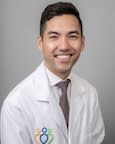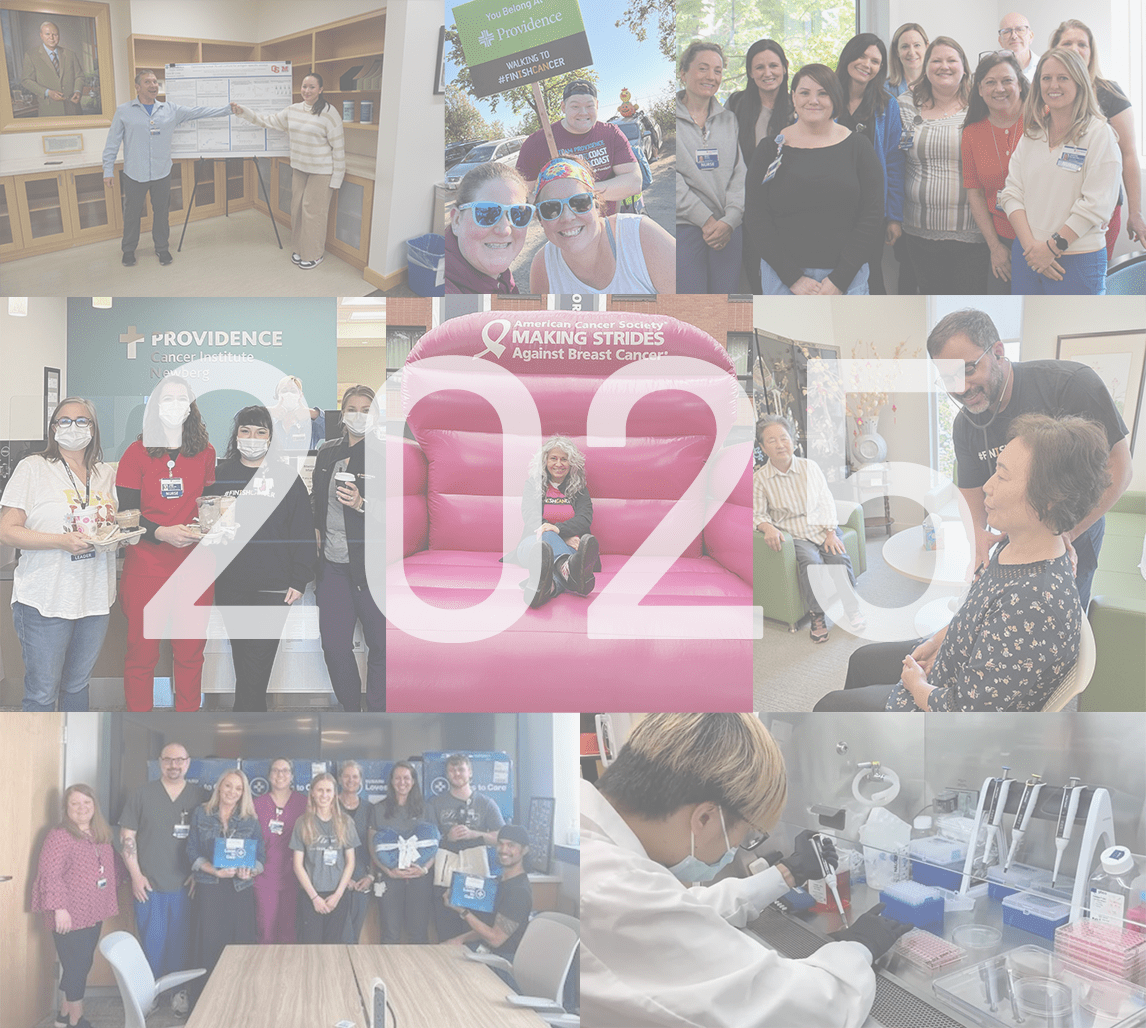Complete guide to cholesterol

[6 MIN READ]
In this article:
- Cholesterol is a waxy, fat-like substance found in every cell of your body. It produces hormones, vitamin D and substances to help you digest food.
- Your body makes all the cholesterol you need. Additional cholesterol comes from several sources, including red meat, tropical oils and full-fat dairy products.
- A Certified Lipid Specialist at Providence explains cholesterol’s impact on your health and offers tips to keep your cholesterol levels where they should be.
If cholesterol had a role in a movie, it would play the evil villain or scary monster. But that kind of type-casting may not always be deserved. Cholesterol is a waxy, fat-like substance found in every cell of your body. And despite cholesterol’s lousy reputation, your body needs it to produce hormones, vitamin D and substances to help you digest food.
We talked to Jason Bensch, M.D., about how cholesterol affects our health and well-being. Dr. Bensch is a Certified Lipid Specialist and board-certified in Cardiology, Echocardiography, Cardiac CT and Nuclear Cardiology. Here’s what he shared.
Understanding cholesterol
Your liver makes all the cholesterol you need. Additional cholesterol comes from the meat, poultry and dairy products you consume regularly. Many of these foods are high in trans and saturated fats, which increase cholesterol. Some tropical oils, including palm oil, palm kernel and coconut oil, also contain saturated fat, which in turn, can lead to elevations in LDL-cholesterol.
"Cholesterol is a building block for many molecules within your body," says Dr. Bensch. "It has a number of different roles and is an important substance for our health. But higher levels of circulating lipoproteins, which contain cholesterol, are associated with an increased risk for heart disease, heart attack, peripheral vascular disease and stroke.
For some people with risk factors, elevated circulating lipoproteins containing cholesterol can infiltrate the artery walls, creating plaque that can narrow or block your blood flow.
Types of cholesterol: LDL, HDL and more
Your blood contains a combination of fats called lipids and proteins called lipoproteins.
“Lipoproteins are like big spheres that are full of lipids. The lipoproteins allow these lipids – which are not water soluble – to float in your bloodstream and transport from place to place,” explains Dr. Bensch. “These lipoproteins usually contain a mixture of cholesterol or triglycerides or both. When we say cholesterol, we're talking about the cholesterol within lipoproteins floating in your bloodstream.”
Cholesterol levels are determined with a fasting blood test. The test gives information about:
- Total cholesterol – the total amount of low-density lipoprotein (LDL) cholesterol and high-density lipoprotein (HDL) cholesterol combined.
- LDL cholesterol – the primary source of cholesterol buildup and blockage of the arteries. LDL is often called the “bad” cholesterol.
- HDL cholesterol – helps prevent cholesterol buildup in your arteries. HDL is often called the “good” cholesterol.
- Triglycerides – a type of fat in your blood that increases the risk of heart disease, heart attack and stroke, especially in women.
How cholesterol is measured
Cholesterol numbers are measured in milligrams per deciliter (mg/dL). There is no one-size-fits-all cholesterol number or screening schedule that’s best for everyone. Screening is done with a simple blood test.
The National Heart, Lung, and Blood Institute recommends the following guidelines for cholesterol screening:
- The first test should occur between ages 9 and 11 and occur again every five years.
- On average, children should repeat a cholesterol screening every five years until they reach age 20.
- Children with a family history of high blood cholesterol, stroke or heart attack may begin testing as young as 2 years old.
- Men aged 45 to 65 should be tested every one to two years.
- People over 65 should be tested every year.
Although the ideal number varies from person to person, in general, the National Heart, Lung, and Blood Institute defines healthy cholesterol levels as:
- Total cholesterol less than 200 mg/dL
- LDL cholesterol less than 100 mg/dL
- HDL cholesterol 60 mg/dL or higher
- Triglycerides less than 150 mg/dL
“Whether or not we say that the numbers are abnormal or high, to some degree, depends on the patient,” says Dr. Bensch. “For example, if you have an LDL cholesterol of 100, that might be pretty good for someone with no history of heart disease or stroke, and no risk factors. But that LDL cholesterol of 100 might be very high for someone with those histories.”
“When you look at studies, the lower numbers are associated with better outcomes. The numbers are important to some degree, and lower is generally better. But how we approach each patient’s situation depends greatly on their risk and medical history,” he adds.
How to reduce high cholesterol
If your cholesterol is higher than it should be, several effective options exist to get your numbers down. Lifestyle modifications and medication can often lower your cholesterol levels and have the added benefit of improving your health overall.
Lifestyle changes
Adopting heart-healthy habits can help you manage your cholesterol levels. These tips from the National Institutes of Health will get you started:
- Eat a balanced diet with plenty of fruits, vegetables, lean proteins and whole grains to limit the amount of trans and saturated fat you consume.
- Maintain a healthy weight.
- Get regular physical activity with 30 to 60 minutes of aerobic exercise most days of the week.
- Manage and lower your stress levels.
- Don’t smoke.
- Get enough sleep with seven to nine hours of shut-eye a night.
Medications
Although lifestyle changes are an effective strategy, they may not always be enough to get the results you’re looking for. Medication can help you achieve your ideal cholesterol level. As an added benefit, it also lowers your risk of heart disease, heart attack and stroke.
“When we put people on cholesterol-lowering drugs, it is, to some degree, a way to manage their cholesterol values. But we are also managing your risk. And that depends so much on each patient,” says Dr. Bensch. “For example, you have a higher risk as you get older. If you have hypertension or diabetes, you're at higher risk. In those cases, we may be more aggressive about recommending lipid-lowering medications to address that risk.”
Several different medications are effective at lowering cholesterol. Still, statins are the treatment of choice in most cases, according to Dr. Bensch.
“Statins have been around since 1987. They are the mainstay of treatment for high cholesterol. After almost four decades of use and research, we have a lot of evidence that supports using statins in a wide variety of patients, including patients who've never had a heart attack, all the way up to patients who are very high risk and have had multiple heart attacks,” he explains. “Statins are by far the most effective, cheap and well-studied medication that we have.”
If your statin therapy needs a boost or isn’t an option, several non-statin medications have been shown to provide good results. Thankfully, there have been a number of advances in the field of lipology. Many of these new treatments are now available to patients if they meet certain criteria.
Symptoms of high cholesterol
High cholesterol is considered a “silent” condition because although it can lead to severe health conditions, it does not typically cause symptoms or noticeable warning signs. Most people do not know they have high cholesterol until a blood test from a routine physical sends up a red flag.
Related health issues
High cholesterol can have significant consequences for your health. According to the American Heart Association, if high cholesterol is left untreated, it dramatically increases your chances of:
- Heart attack
- Stroke
- Heart failure
- Kidney disease
- Vision loss
- Sexual dysfunction
- Heart disease
- Atherosclerosis
Low cholesterol meals
Eating a balanced diet is not a cure-all for high cholesterol, but it is an integral part of controlling it.
“Diet is a significant way to address cholesterol,” says Dr. Bensch. “How much your diet lowers your cholesterol depends on how bad your diet is. If you're starting out with a terrible diet and you make significant changes and are now eating in a healthier pattern of eating, you may have dramatic changes in your cholesterol, triglycerides or both.”
Dietary principles for lowering cholesterol
“When I think of LDL cholesterol, I usually think about how much saturated fat someone consumes," says Dr. Bensch. “It's not necessarily about how much cholesterol they eat – although that is important to watch. What's more important is watching how much saturated fat you're taking in.”
“We'll often point to red meats or processed baked goods that contain tropical oils, like palm or coconut oil. These are very high in saturated fat, and your body will turn that saturated fat into more LDL cholesterol,” he adds.
Other foods and drinks that can lead to high triglycerides include:
- Alcohol
- Refined sugars
- White flours
- White rice
Making healthy choices at the grocery store and dinner table can help prevent high cholesterol from damaging your health.
- Limit foods high in saturated fats, such as fatty meats, dairy-based desserts, tropical oils and cheese.
- Choose foods low in saturated fats such as seafood, fat-free or low-fat dairy products, whole grains, fruits and vegetables.
- Eat foods naturally high in fiber and unsaturated fats, such as beans, oatmeal, avocados, olive oil and nuts.
You can find healthy recipes, meal planning and grocery shopping tips at a wide range of reputable online sources, including:
- Million Hearts® healthy recipes page
- MyPlate
- DASH diet eating plan
- Mediterranean diet
- Healthy recipes from the National Institutes of Health
“Managing high cholesterol levels is an important strategy in lowering the risk for heart disease – which is still the number one cause of death and the number one cause of morbidity in the world,” says Dr. Bensch. “Keeping your cholesterol low has a significant impact on your health.”
Contributing caregiver

Jason S. Bensch, M.D., is board certified in Cardiology, Echocardiography, Cardiac CT, and Nuclear Cardiology and is a certified Clinical Lipid Specialist at Providence Heart Clinic – Hollywood.
Find a doctor
At Providence, our cardiovascular experts use the most effective therapies to treat a wide range of heart conditions. If you are looking for a heart specialist, you can search for one who’s right for you in our provider directory. Through Providence Express Care Virtual, you can access a full range of health care services.
Download the Providence app
It’s all in the app: easily stay connected with Providence and your health. With the Providence app, you can schedule appointments, have virtual visits from the comfort of your own home, get health recommendations personalized for you, access your health records and so much more. Learn more and download the app.
Related resources
How can sleep apnea affect heart health?
The heart of the matter: The truth about heart health
This information is not intended as a substitute for professional medical care. Always follow your health care professional's instructions.



